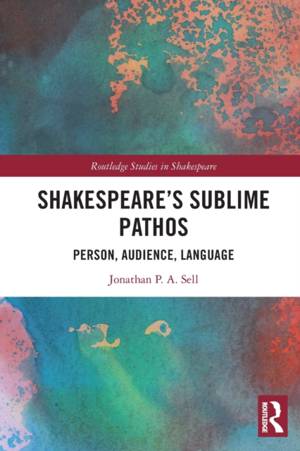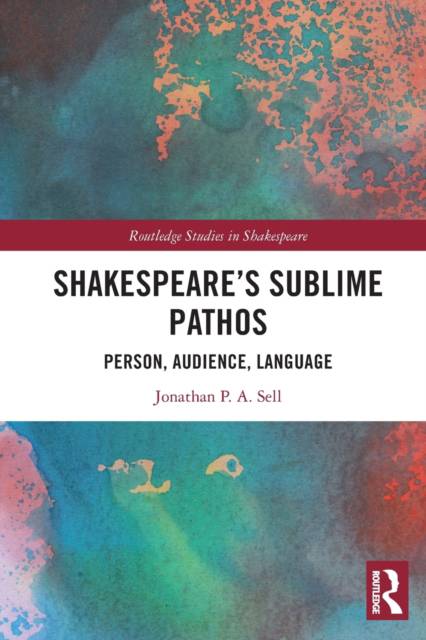
- Afhalen na 1 uur in een winkel met voorraad
- In januari gratis thuislevering in België
- Ruim aanbod met 7 miljoen producten
- Afhalen na 1 uur in een winkel met voorraad
- In januari gratis thuislevering in België
- Ruim aanbod met 7 miljoen producten
Omschrijving
Winner of the AEDEAN "Enrique García Díez" Literature Research Award 2023
Winner of the European Society for the Study of English Book Award 2024
Shakespeare's Sublime Pathos: Person, Audience, Language breaks new ground in providing a sustained, demystifying treatment of its subject and looking for answers to basic questions regarding the creation, experience, aesthetics and philosophy of Shakespearean sublimity. More specifically, it explores how Shakespeare generates experiences of sublime pathos, for which audiences have been prepared by the sublime ethos described in the companion volume, Shakespeare's Sublime Ethos. To do so, it examines Shakespeare's model of mutualistic character, in which "entangled" language brokers a psychic communion between fictive persons and real-life audiences and readers. In the process, Sublime Critical platitudes regarding Shakespeare's liberating ambiguity and invention of the human are challenged, while the sympathetic imagination is reinstated as the linchpin of the playwright's sublime effects. As the argument develops, the Shakespearean sublime emerges as an emotional state of vulnerable exhilaration leading to an ethically uplifting openness towards others and an epistemologically bracing awareness of human unknowability. Taken together, Shakespeare's Sublime Pathos and Shakespeare's Sublime Ethos show how Shakespearean drama integrates matter and spirit on hierarchical planes of cognition and argue that, ultimately, his is an immanent sublimity of the here-and-now enfolding a transcendence which may be imagined, simulated or evoked, but never achieved.
Specificaties
Betrokkenen
- Auteur(s):
- Uitgeverij:
Inhoud
- Aantal bladzijden:
- 238
- Taal:
- Engels
- Reeks:
Eigenschappen
- Productcode (EAN):
- 9781032017952
- Verschijningsdatum:
- 9/01/2023
- Uitvoering:
- Paperback
- Formaat:
- Trade paperback (VS)
- Afmetingen:
- 152 mm x 229 mm
- Gewicht:
- 344 g

Alleen bij Standaard Boekhandel
Beoordelingen
We publiceren alleen reviews die voldoen aan de voorwaarden voor reviews. Bekijk onze voorwaarden voor reviews.









